Related Research Articles

Lymphoma is a group of blood and lymph tumors that develop from lymphocytes. The name typically refers to just the cancerous versions rather than all such tumours. Signs and symptoms may include enlarged lymph nodes,fever,drenching sweats,unintended weight loss,itching,and constantly feeling tired. The enlarged lymph nodes are usually painless. The sweats are most common at night.
A cancer vaccine,or oncovaccine,is a vaccine that either treats existing cancer or prevents development of cancer. Vaccines that treat existing cancer are known as therapeutic cancer vaccines or tumor antigen vaccines. Some of the vaccines are "autologous",being prepared from samples taken from the patient,and are specific to that patient.
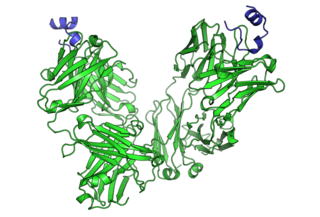
Cancer immunotherapy (immuno-oncotherapy) is the stimulation of the immune system to treat cancer,improving the immune system's natural ability to fight the disease. It is an application of the fundamental research of cancer immunology and a growing subspecialty of oncology.

Dacarbazine,also known as imidazole carboxamide and sold under the brand name DTIC-Dome,is a chemotherapy medication used in the treatment of melanoma and Hodgkin's lymphoma. For Hodgkin's lymphoma it is often used together with vinblastine,bleomycin,and doxorubicin. It is given by injection into a vein.
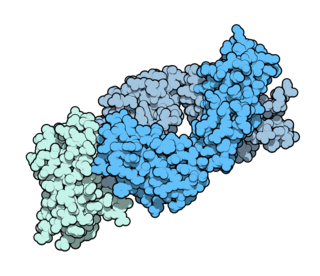
Ipilimumab,sold under the brand name Yervoy,is a monoclonal antibody medication that works to activate the immune system by targeting CTLA-4,a protein receptor that downregulates the immune system.

Galectin-9 was first isolated from mouse embryonic kidney in 1997 as a 36 kDa beta-galactoside lectin protein. Human galectin-9 is encoded by the LGALS9 gene.
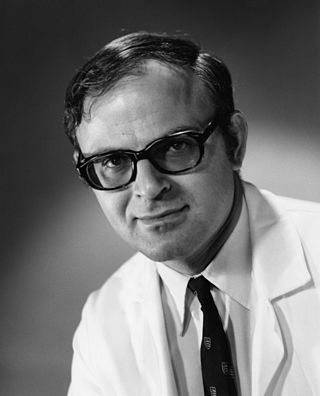
George P. Canellos is an American oncologist and cancer researcher. His research career spans many decades,as well as several areas of therapeutic agents for the treatment of malignant diseases. He is perhaps most known for his work with Vincent T. DeVita in which he developed the combination chemotherapy CMF,which was one of the first combination therapies for breast cancer. The two also collaborated to create the MOPP regimen for Hodgkin's lymphoma.
Laurie Hollis Glimcher is an American physician-scientist who was appointed president and CEO of Dana–Farber Cancer Institute in October 2016. She was elected a Member of the American Philosophical Society in 2019.
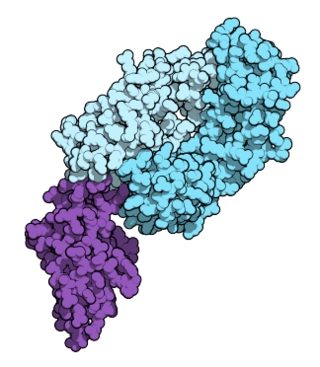
Nivolumab,sold under the brand name Opdivo,is a medication used to treat a number of types of cancer. This includes melanoma,lung cancer,malignant pleural mesothelioma,renal cell carcinoma,Hodgkin lymphoma,head and neck cancer,urothelial carcinoma,colon cancer,esophageal squamous cell carcinoma,liver cancer,gastric cancer,and esophageal or gastroesophageal junction (GEJ) cancer. It is administered intravenously.

Pembrolizumab,sold under the brand name Keytruda,is a humanized antibody used in cancer immunotherapy that treats melanoma,lung cancer,head and neck cancer,Hodgkin lymphoma,stomach cancer,cervical cancer,and certain types of breast cancer. It is administered by slow intravenous injection.
Lynda Chin is a Chinese-American medical doctor. She is a board-certified dermatologist who was the founding department chair and professor of genomic medicine at the University of Texas MD Anderson Cancer Center,as well as scientific director of the MD Anderson Institute for Applied Cancer Science. In late 2012 she was elected as a member of the Institute of Medicine (IOM) of the National Academies.

PD-1 inhibitors and PD-L1 inhibitors are a group of checkpoint inhibitor anticancer drugs that block the activity of PD-1 and PDL1 immune checkpoint proteins present on the surface of cells. Immune checkpoint inhibitors are emerging as a front-line treatment for several types of cancer.
Checkpoint inhibitor therapy is a form of cancer immunotherapy. The therapy targets immune checkpoints,key regulators of the immune system that when stimulated can dampen the immune response to an immunologic stimulus. Some cancers can protect themselves from attack by stimulating immune checkpoint targets. Checkpoint therapy can block inhibitory checkpoints,restoring immune system function. The first anti-cancer drug targeting an immune checkpoint was ipilimumab,a CTLA4 blocker approved in the United States in 2011.
Camidanlumab tesirine is an antibody-drug conjugate (ADC) composed of a human antibody that binds to the protein CD25,conjugated to a pyrrolobenzodiazepine dimer toxin. The experimental drug,developed by ADC Therapeutics is being tested in clinical trials for the treatment of B-cell Hodgkin's lymphoma (HL) and non-Hodgkin lymphoma (NHL),and for the treatment of B-cell acute lymphoblastic leukemia (ALL) and acute myeloid leukemia (AML).
Judy Ellen Garber is the director of the Center for Cancer Genetics and Prevention at the Dana–Farber Cancer Institute and a professor of medicine at Harvard Medical School. Garber previously served as president of the American Association for Cancer Research.
Suzanne Louise Topalian is an American surgical oncologist. She is the Bloomberg-Kimmel Professor of Cancer Immunotherapy in the Bloomberg-Kimmel Institute for Cancer Immunotherapy at Johns Hopkins University School of Medicine. In this role,she studies human anti-tumor immunity.
Levi A. Garraway is an American oncologist. His research team was among the first to adapt genomics technologies to enable scalable,high-throughput clinical approaches to cancer gene mutation profiling. As a result,he was inducted into the American Society for Clinical Investigation,American Association for Cancer Research,and National Academy of Medicine.
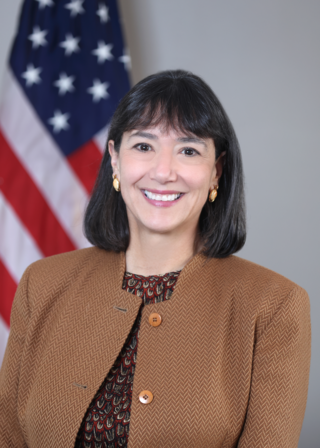
Monica Bertagnolli is an American surgical oncologist and the 17th director of the National Institutes of Health. She previously served as the 16th director of the National Cancer Institute (NCI). Prior to her governmental positions,she worked at Brigham and Women's Hospital and Dana–Farber Cancer Institute and was the Richard E. Wilson Professor of Surgery at Harvard Medical School.
Matthew Langer Meyerson is an American pathologist and the Charles A. Dana Chair in Human Cancer Genetics at the Dana-Farber Cancer Institute. He is also director of the Center for Cancer Genomics at the Dana-Farber Cancer Institute,and the Director of Cancer Genomics at the Broad Institute of MIT and Harvard.
Irene Ghobrial is an American-Egyptian physician who is a professor at the Dana–Farber Cancer Institute and Harvard Medical School,where her research investigates the progression of multiple myeloma. She is interested in why certain patients with monoclonal gammopathy of undetermined significance (MGUS) and smoldering multiple myeloma develop B cell malignancies. She leads the Stand Up To Cancer multiple myeloma dream team.
References
- ↑ "Margaret Ann Shipp MD". doximity.com. Retrieved June 6, 2021.
- ↑ "Margaret Shipp, MD". American Society for Clinical Investigation . Retrieved June 6, 2021.
- ↑ "Predictive molecular signature in lymphoma may direct targeted therapy". Dana–Farber Cancer Institute. September 10, 2012. Retrieved June 6, 2021.
- ↑ "Blood levels of immune protein predict risk in Hodgkin disease". Eurekalert. December 10, 2012. Retrieved June 6, 2021.
- ↑ "Three Dana-Farber faculty elected to Institute of Medicine". Dana–Farber Cancer Institute. October 22, 2014. Retrieved June 6, 2021.
- ↑ Levy, Robert (December 6, 2014). "New Immunotherapy Breakthrough". Harvard University. Retrieved June 6, 2021.
- ↑ "In Check: Attacking Cancer from Many Fronts". Dana Farber Cancer Center. June 27, 2017. Retrieved June 11, 2021.
- ↑ "Study finds melanoma biomarkers predicting checkpoint blocker response". Dana–Farber Cancer Institute. July 18, 2018. Retrieved June 6, 2021.
- ↑ "New 'Blood Cancer Discoveries Grant Program' supported by a novel 3-way collaboration". eurekalert.org. Eurekalert. July 1, 2020. Retrieved June 2, 2021.